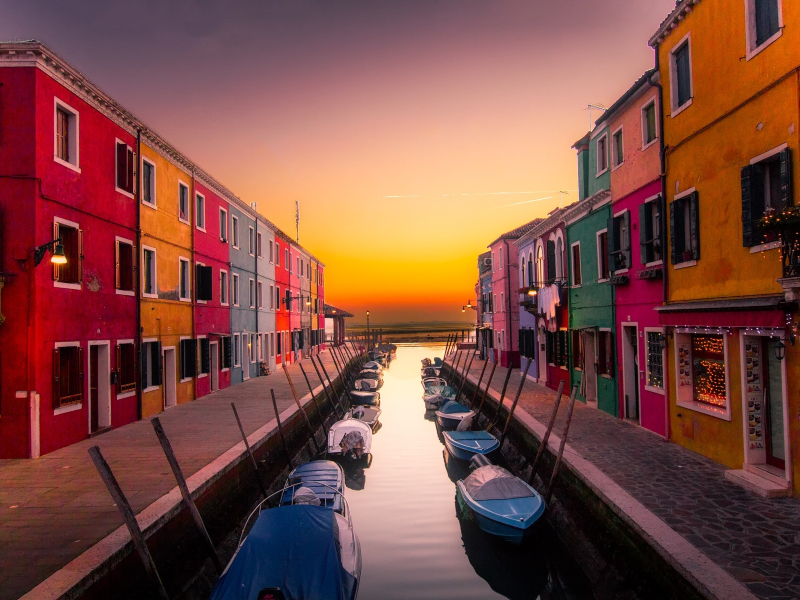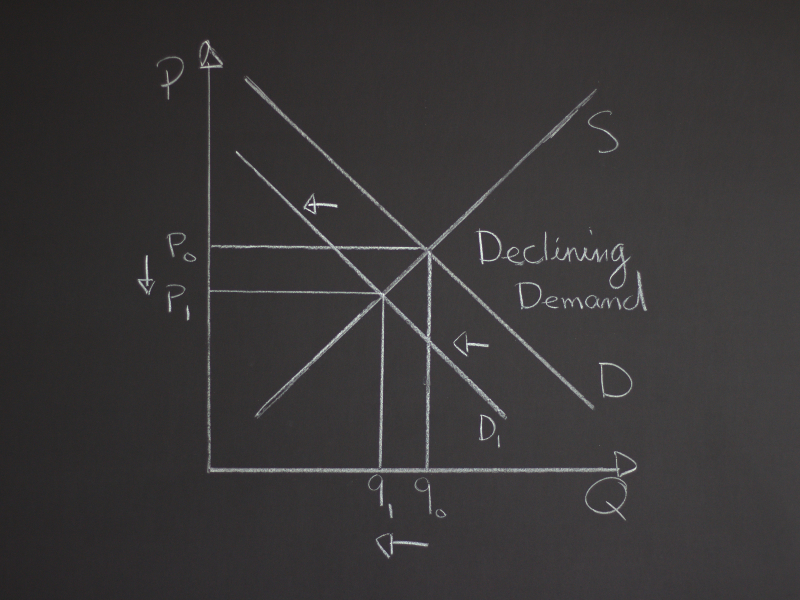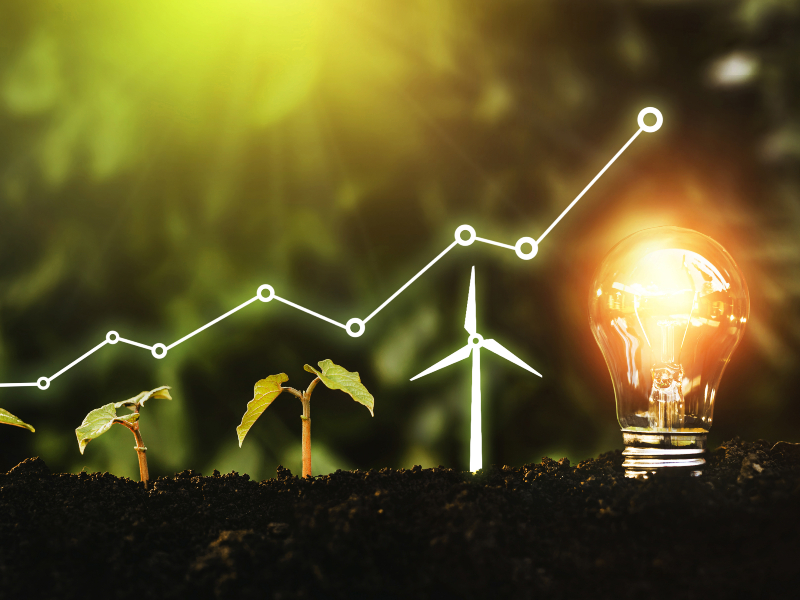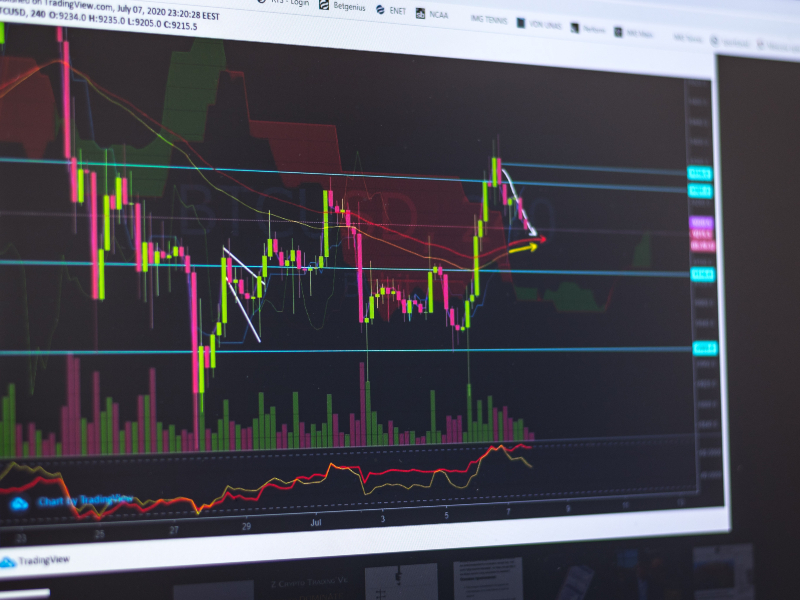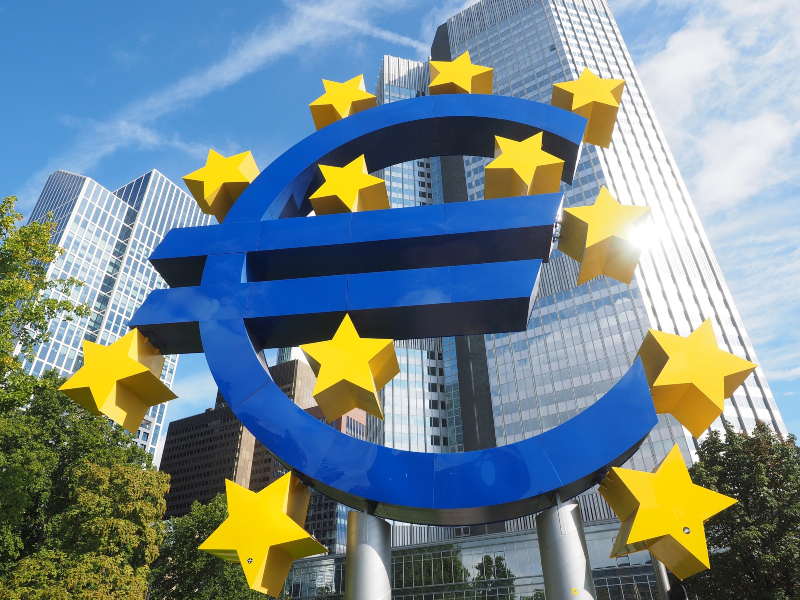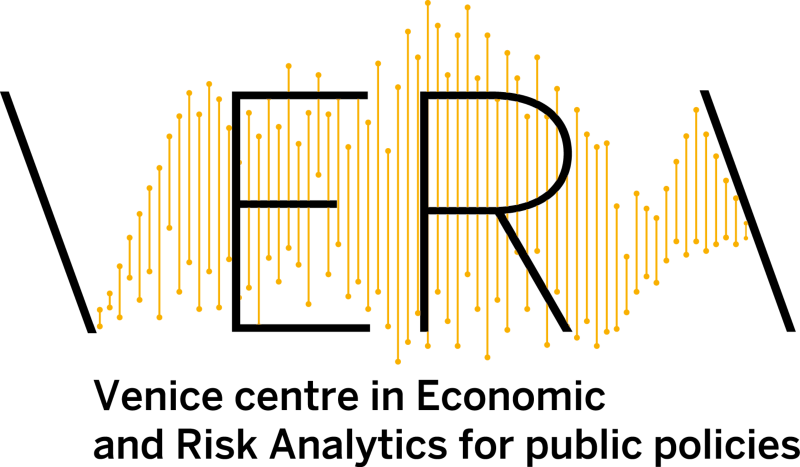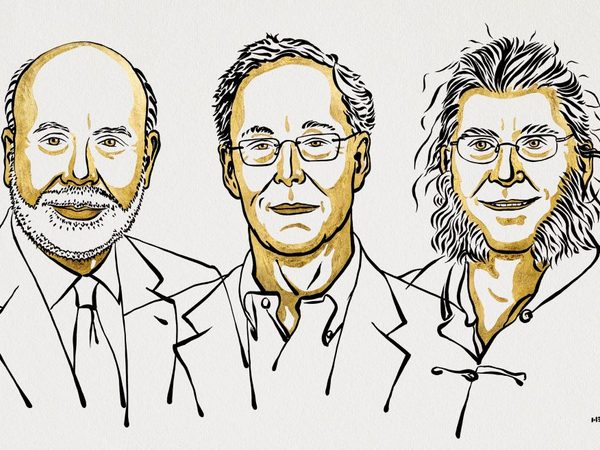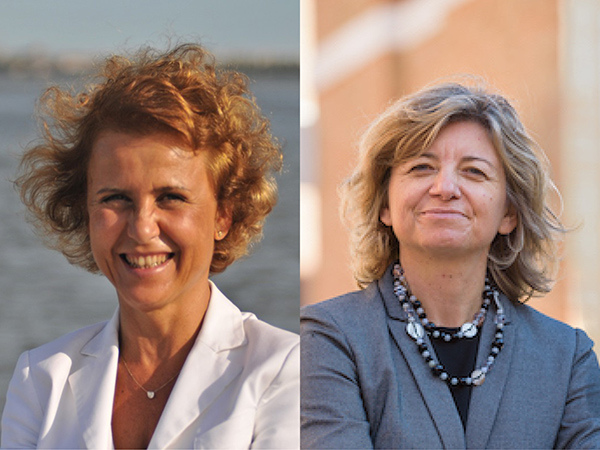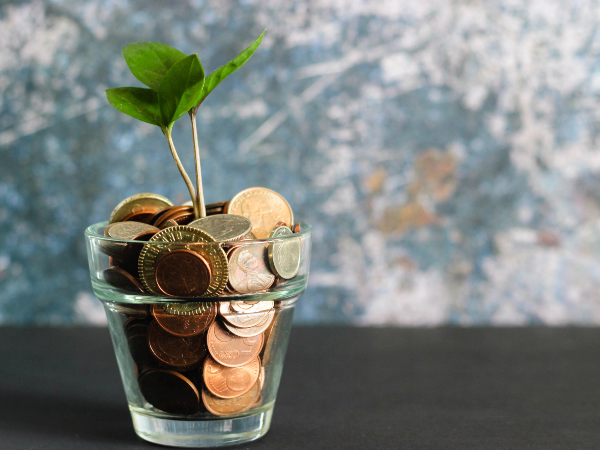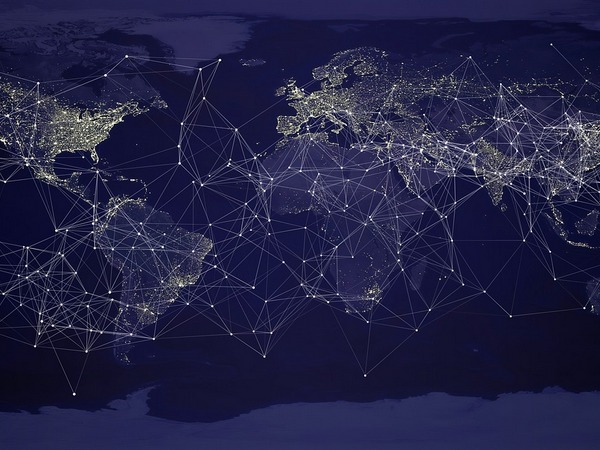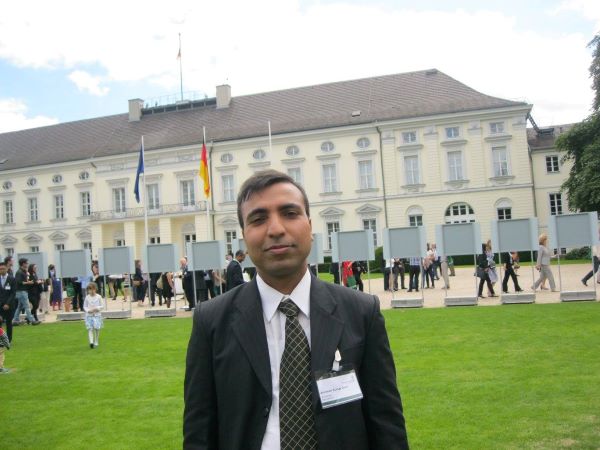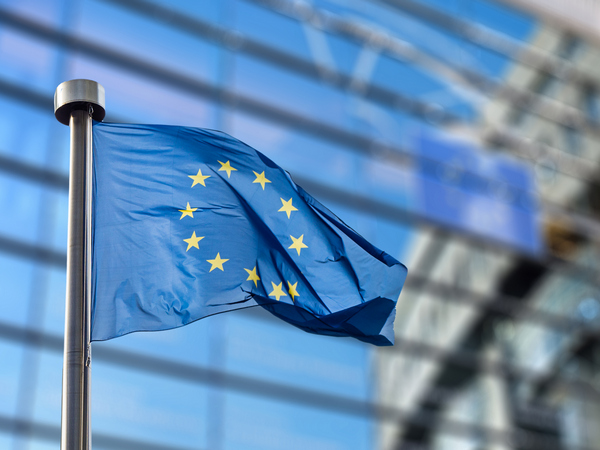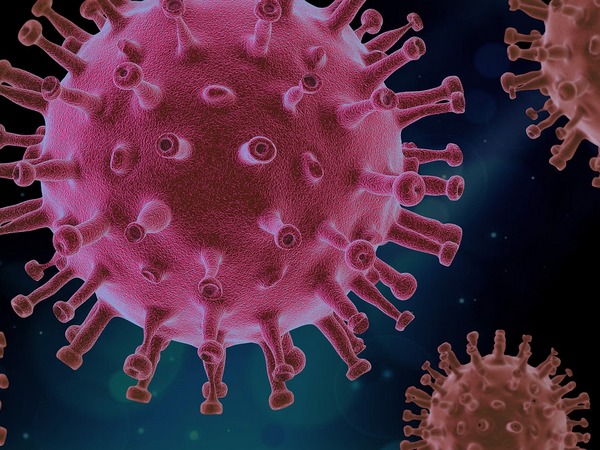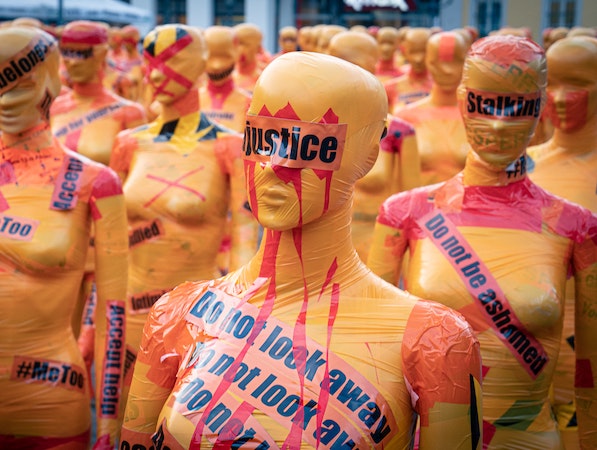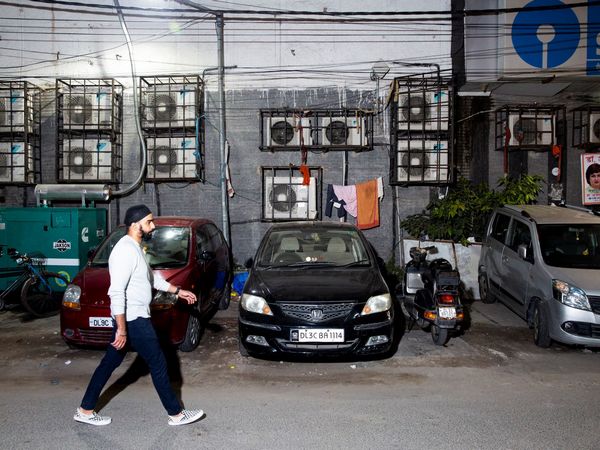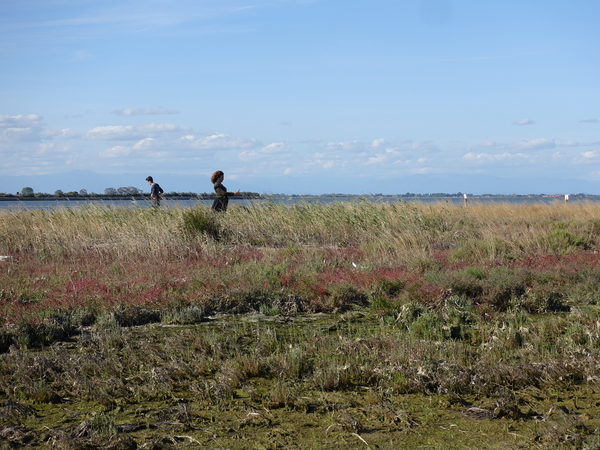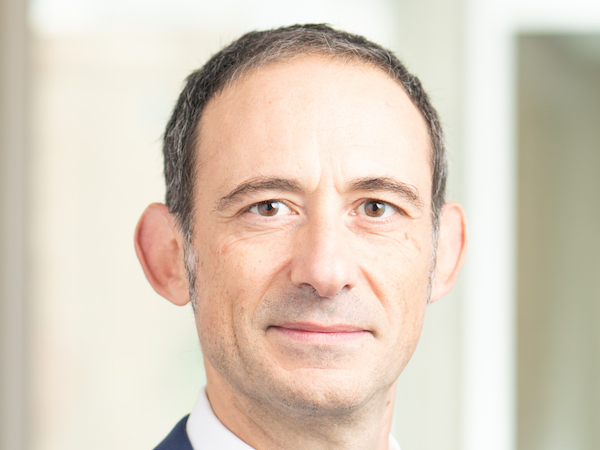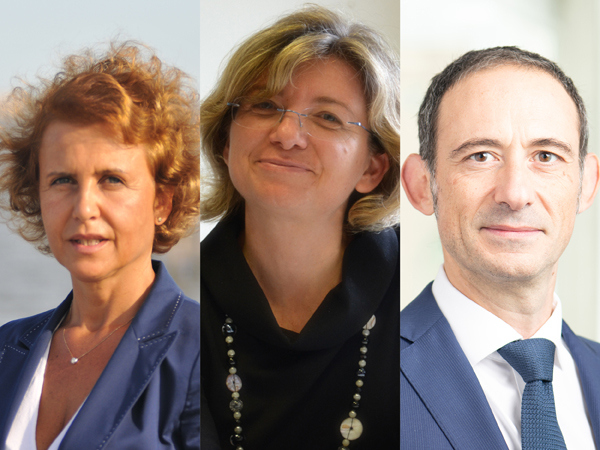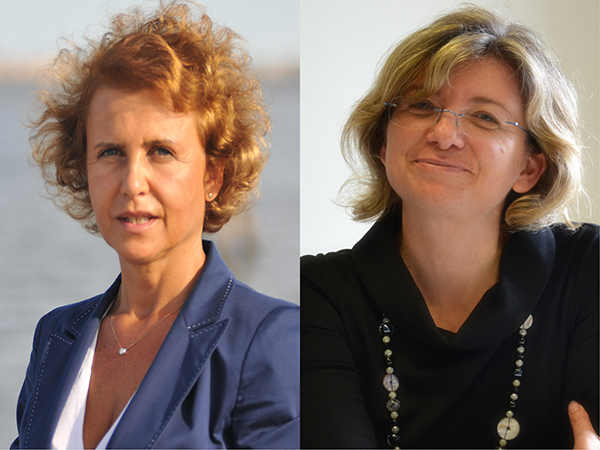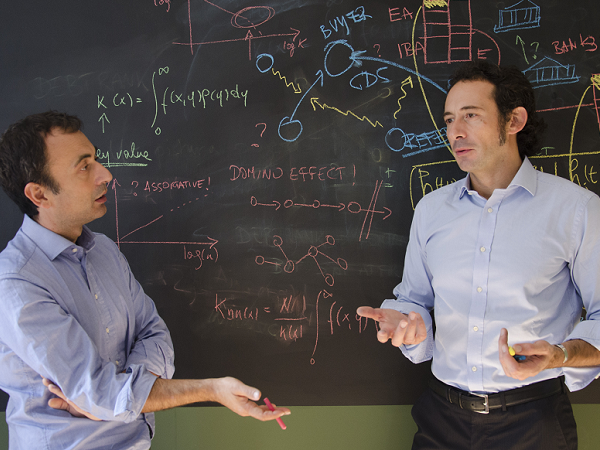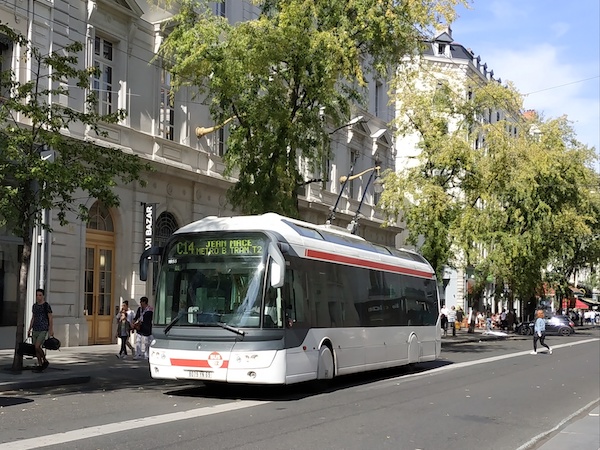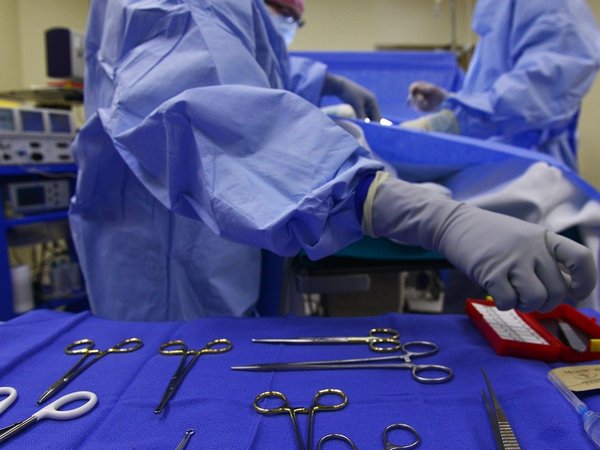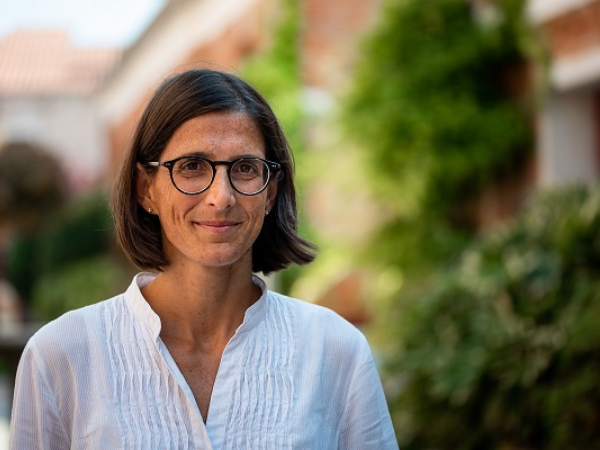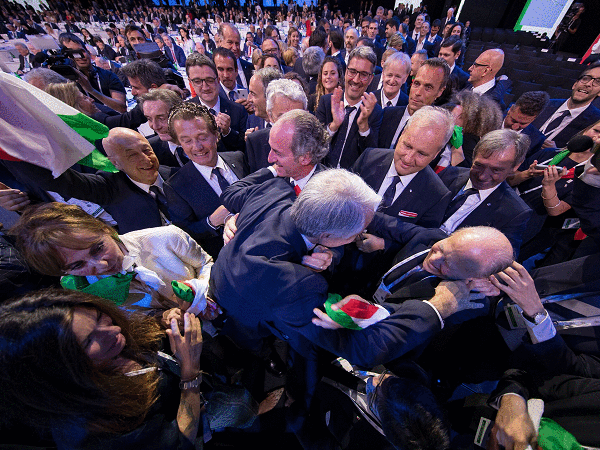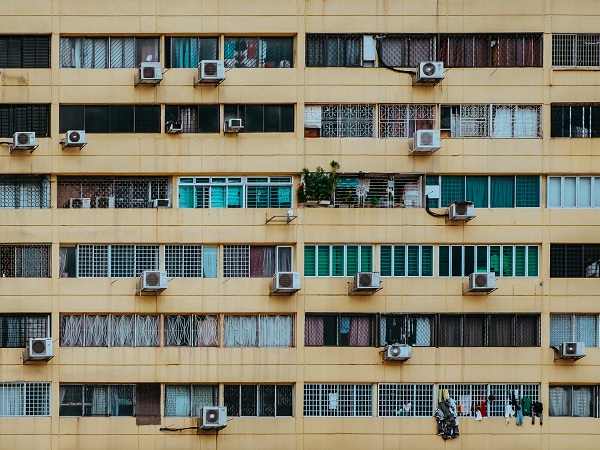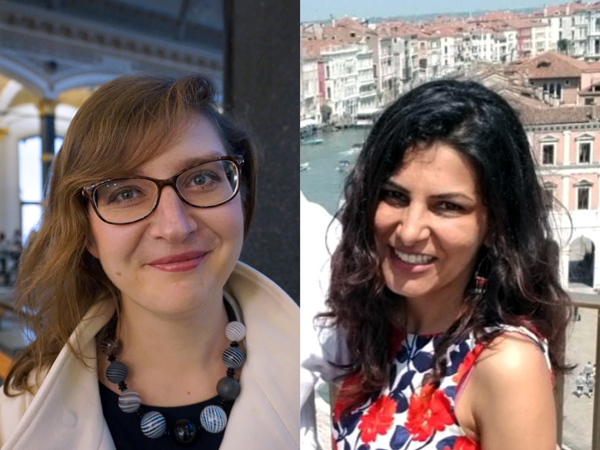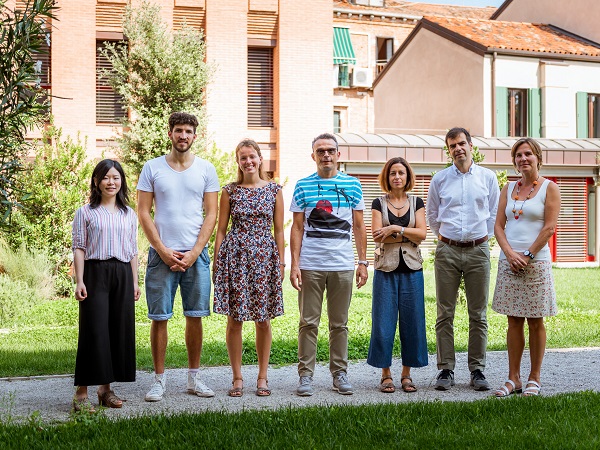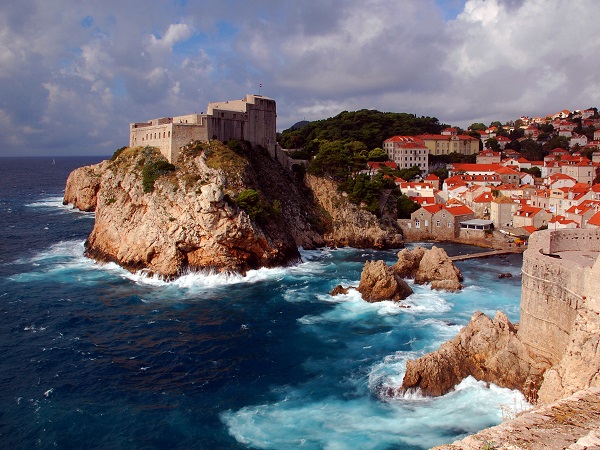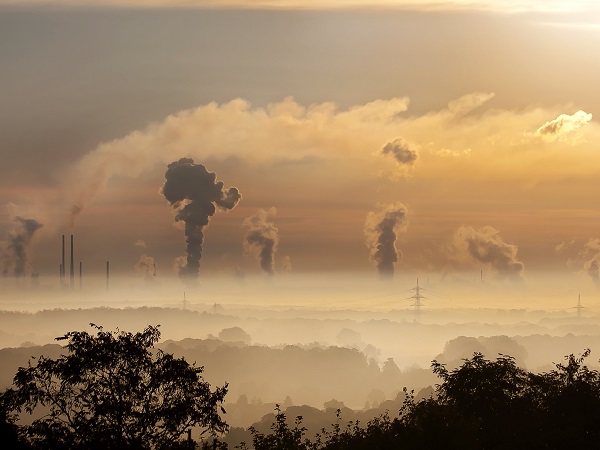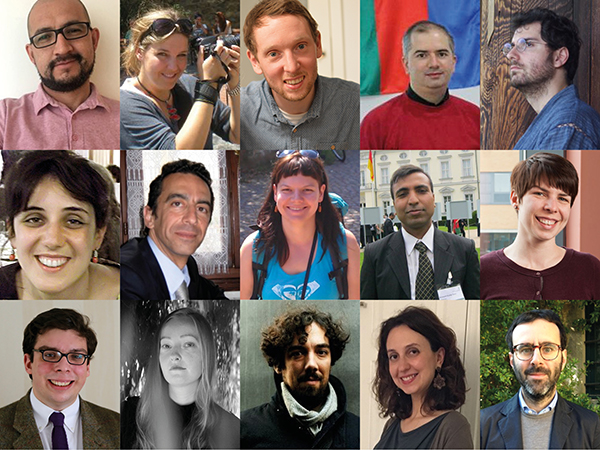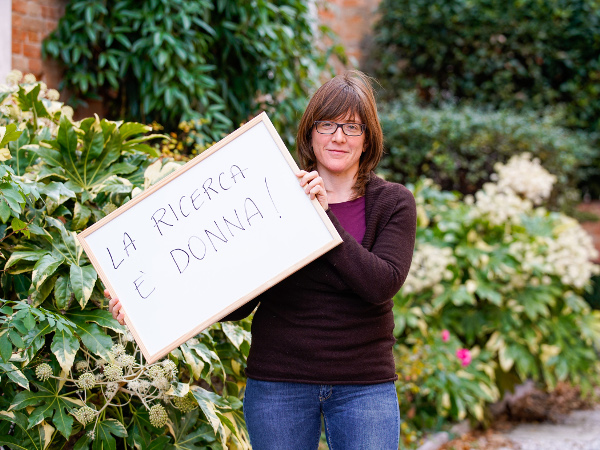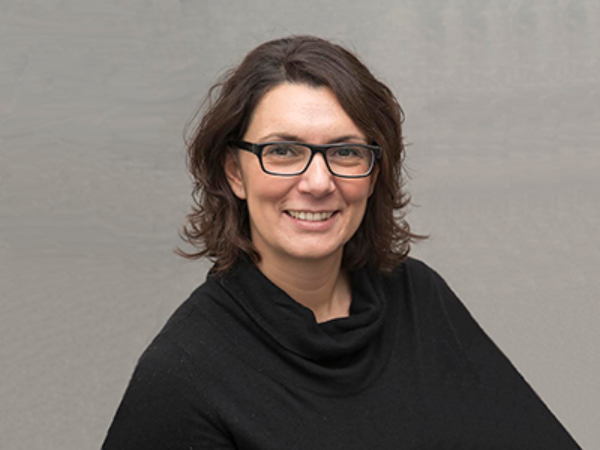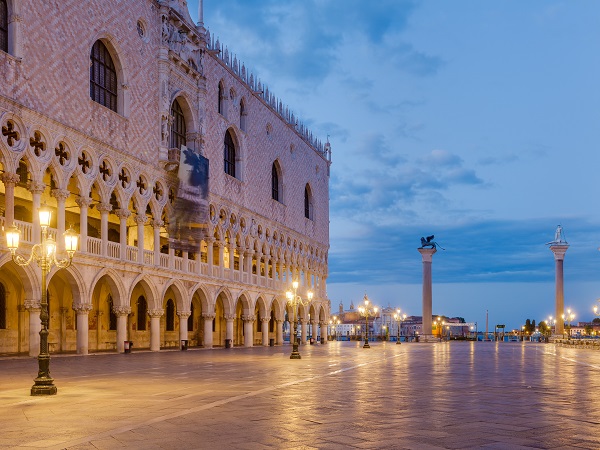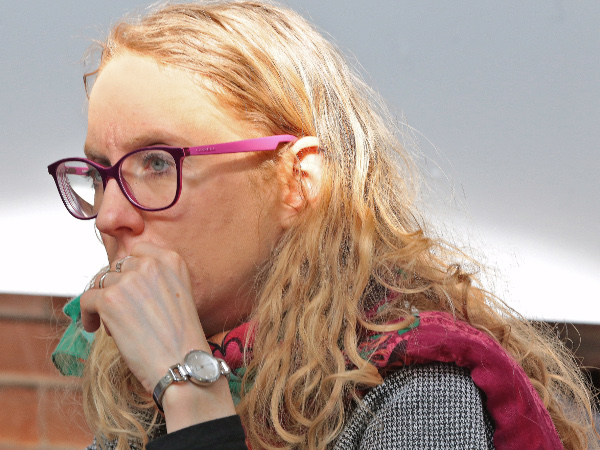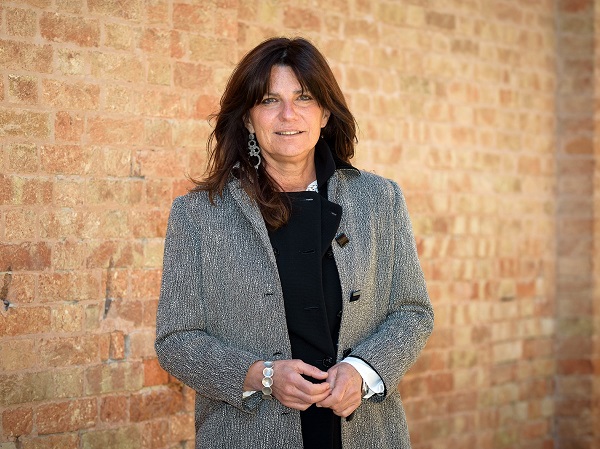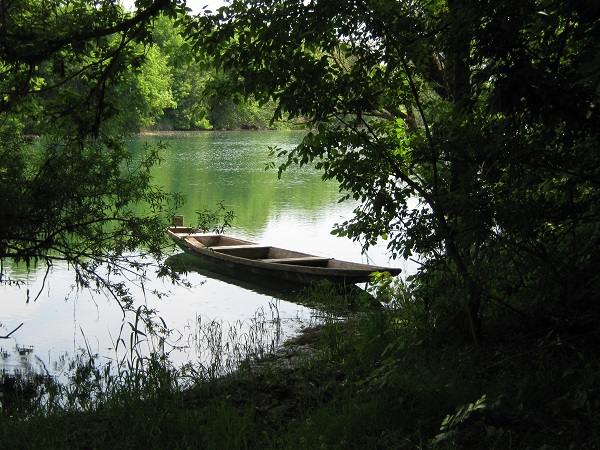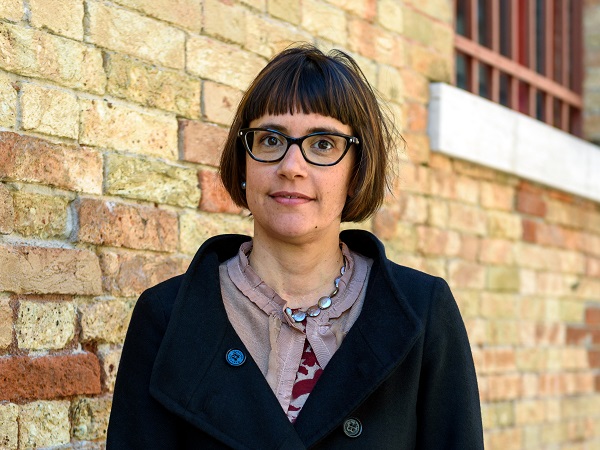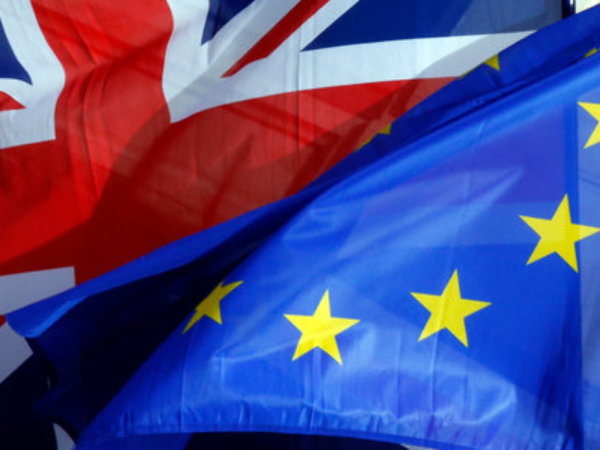Research
Department of excellence
The Department of Economics has been declared, for the second consecutive time, one of the 180 Italian Departments of Excellence. VIVA ("Venice Initiative on Vulnerability Analysis") is an innovative research and educational programme that will be implemented thanks to the funding received by the Ministry of University and Research for the Departments of Excellence program. The aim of VIVA is to study how to deal with the issues related to social and economic systems in transition, with a special focus on vulnerable situations that might be exacerbated by exposure to exogenous shocks, increasing inequality in multiple contexts (economic, environmental, demographic, health, etc.).

Research areas
From a consolidated tradition of economic studies, research at the Department of Economics develops knowledge and understanding of economic phenomena dealing with the complexity of global market scenarios and exploring related social, juridical, ethical and environmental implications.
Department's Delegate for Research: Mario Padula
ricerca.economia@unive.it
T: +39 041 234 6808
Research projects
The Department of Economics manages numerous research projects, both national and international, characterized by a multidisciplinary and innovative approach to those small, medium and large scale applications.
Latest funded projects

GRINS - Growing Resilient, INclusive and Sustainable (NRRP Project)
Funding Programme: PNRR M4C2 Inv.1.3 PE- Enlarged Partnerships
Hub: GRINS Foundation - GROWING RESILIENT, INCLUSIVE AND SUSTAINABLE
Length: 01/12/2022 - 30/11/2025 (36 months)
Budget: € 115.900.000 (Ca' Foscari € 4.135.000)
Ca’ Foscari Spoke: 4 - Sustainable finance
Principal Investigator at Ca’ Foscari: Monica Billio, Department of Economics
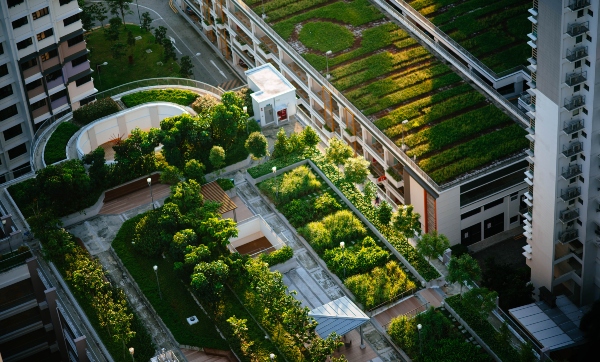
Engage for ESG activation investments
Researcher: Monica Billio; Granth: LIFE; Lenght:01/11/2022 - 31/10/2025; Budget: 1.472.500 € (Ca' Foscari 128.000€).
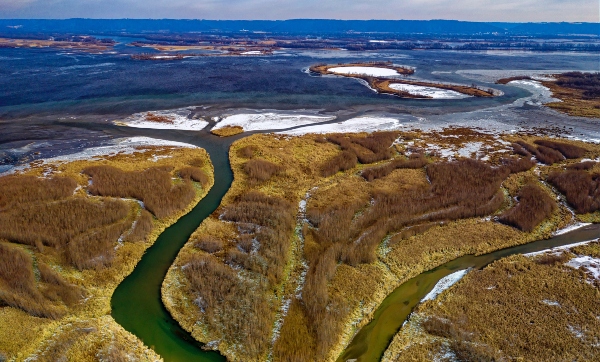
DANUBIUS Implementation Phase Project - DANUBIUS-IP
Researcher: Nicola Camatti; Granth: Horizon Europe; Lenght:01/10/2022 - 30/09/2025; Budget: 1.499.999 € (Ca' Foscari 30.000€).
System for the Scientific Computing at Ca’ Foscari
The System for the Scientific Computing at Ca’ Foscari (SCSCF) is a set of processors and programs aimed at performing particularly demanding calculations in terms of computing power and storage of large amounts of data, with the goal of satisfying the reasearchers growing needs of the Ca' Foscari University of Venice.
Publications catalogue
The publications catalogue of the Department collects the information from ARCA [ITA], the institutional open-access archive of Ca’ Foscari scientific production. It is also accessible from cerCa, the Ca’ Foscari bibliographic platform.
Journals and Working Papers
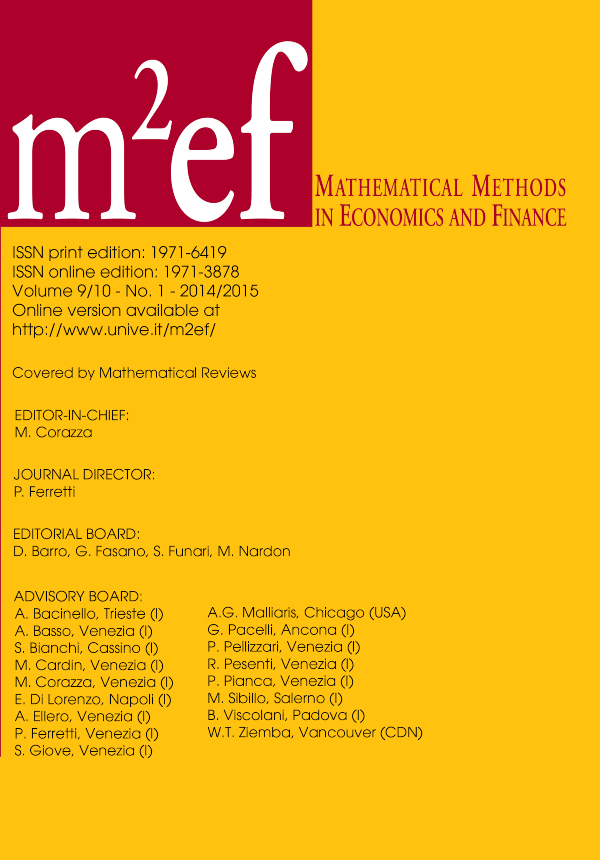
Mathematical Methods in Economics and Finance
Publisher: Department of Economics, Ca' Foscari University of Venice
Editor: Marco Corazza
Mathematical Methods in Economics and Finance is a peer-reviewed free-access journal containing original and unpublished articles that present theoretical results, methodological contributions and applications in actuarial and financial mathematics, mathematical economics and quantitative finance.
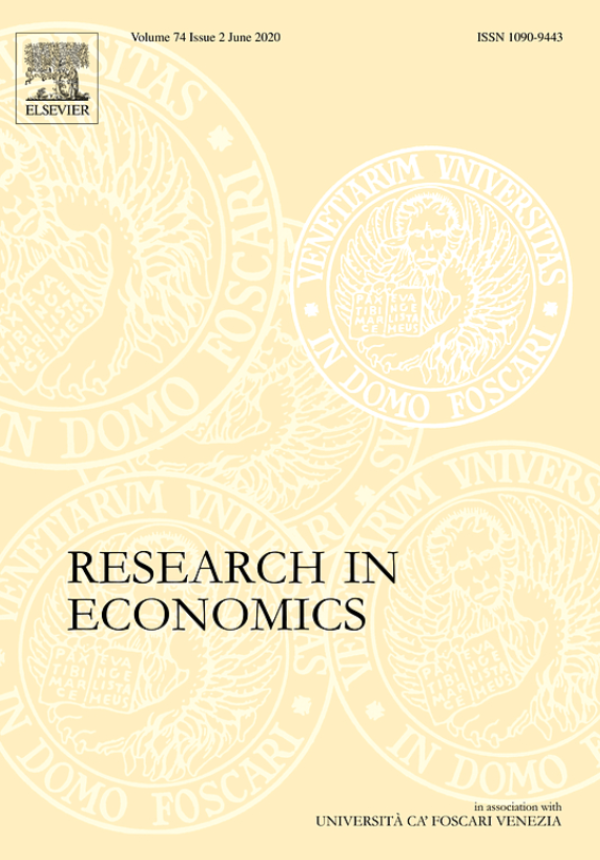
Research in Economics
Publisher: Elsevier
Editor: Loriana Pelizzon
Research in Economics is one of the oldest general economic journals in Europe and publishes important research papers on a wide range of topics. The purpose of the journal is to select original theoretical and empirical articles that will have a high impact in the economic debate.
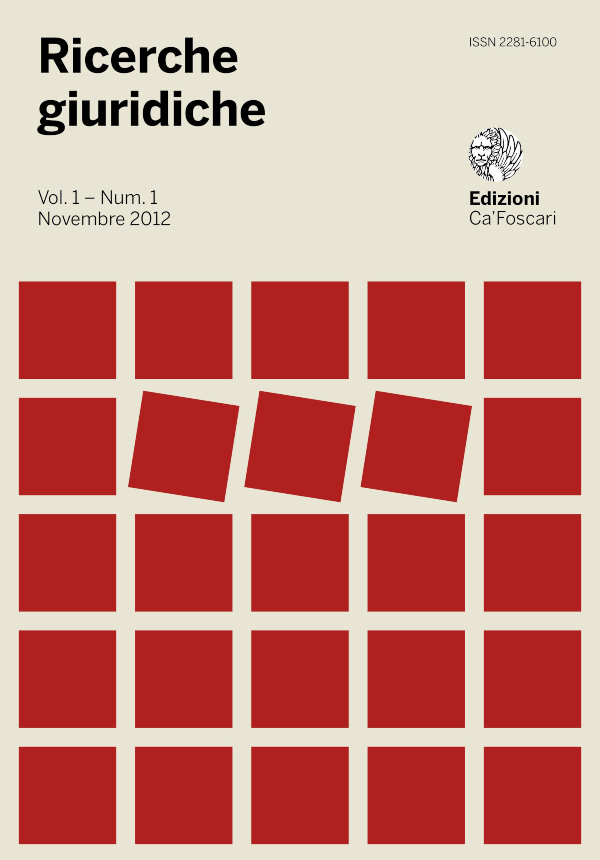
Ricerche giuridiche [ITA]
Publisher: Ca' Foscari Digital Publishing
Editor: Alberto Urbani
Ricerche Giuridiche is an expression of the Phd Project of Higher Education in Legal Sciences and the Legal Studies Centre of the Department of Economics and aims to disseminate in the scientific community the results of research conducted by young scholars (especially Phd and Phd students), but also to host the work of established professors and scholars.
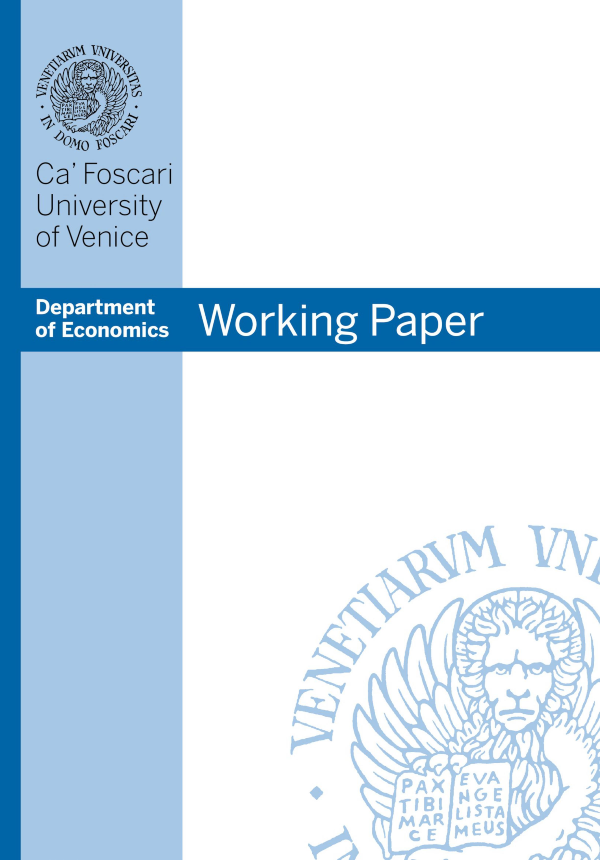
Working Papers
Publisher: Department of Economics, Ca' Foscari University of Venice
Editor: Francesco Lancia
The series "Department of Economics - Working Paper", brings together original scientific writings from the economic field of the members of the Department of Economics of Ca' Foscari University of Venice, with the aim to give visibility to the first results of the Department’s research activities, before publication in national and international scientific journals.
Working in research
PhD Degree is the highest level of academic education. It is a limited admission degree programme and lasts for at least three years. It allows graduates to develop methods and skills to pursue highly qualified research.
Short-term research fellowships allow Master’s Degree graduates to pursue short-term research (less than 12 months normally) including them in existing projects and research groups.
Research grants allow Master’s Degree graduates and PhDs to pursue research activities at the university or in the projects offered to the candidates.
In this section also a list of the ongoing research grants and topics [ITA], including the area research fellowships and the research fellowships on specific projects.
Discover all the other opportunities of international recruitment at Ca’ Foscari: our University is highly committed in achieving excellence in research, developing international partnerships and funding new talents.
Research news
Nobel Prize in Economic Sciences 2022: Bernanke, Diamond and Dybvig
The Nobel Prize in Economic Sciences 2022 was awarded to Ben Bernanke (Brookings Institution di Washington), Douglas Diamond (Chicago University), and Philip Dybvig (Washington University in St. Louis), “for research on banks and financial crises”.
China and the U.S.: a new balance in the global financial system
A joint research project that involves Ca’ Foscari University of Venice, Goethe University Frankfurt, the Massachusetts Institute of Technology, the University of Massachusetts Amherst, and Stockholm University is analysing the changing role of the U.S. in the global financial system.
Children of non-self-sufficient parents let down by public welfare system
Research conducted by economists at Ca' Foscari University of Venice and at Université Paris Dauphine indicates that the efforts that caregivers invest in assisting a parent may be related to an increased likelihood of experiencing depressive symptoms.
The European TranspArEEnS project enters phase 3
TranspArEEns is a 30-month EU-funded project that aims to develop a qualitative-quantitative framework for the standardised collection and analysis of EE (energy efficiency) and ESG (Environmental Social Governance) information of small and medium-sized enterprises and deliver a standardised EE-ESG rating in accordance with the recommendations and benchmarks provided at European level by the EU Technical Expert Group on Sustainable Finance (TEG).
Stefano Soriani on European Governance and the Pandemic
How has the pandemic affected the European system of governance? What role have European cities played in facing this health crisis and its social and economic effects? We have interviewed Stefano Soriani, an expert in economic and political geography and co-organiser of the Multi-level governance in Europe: the case of Covid-19 pandemics international conference.
A mathematical model on how sanctions, duties and conflicts affect commerce
A new mathematical model can predict global changes in commercial and financial exchange. The research (Roberto Casarin, full professor of Econometrics, is co-author) has been published in the Journal of Business and Economic Statistics.
Marie Curie Fellow Animesh Gain on Water Security and Climate Change
Dr Animesh Gain, Marie Curie Global Fellow at the Department of Economics of Ca’ Foscari and MIT, has contributed to the chapter on Water for the Sixth Assessment Report of the IPCC (Intergovernmental Panel on Climate Change). We have asked him to talk about his research and his contribution to the chapter on Water.
What are NFTs? Digital art and the notion of ownership
What are NFTs (Non-Fungible Tokens)? Many people asked themselves that question upon hearing about the multimillion sales in the world of art collection and digital art. We have interviewed professors Alessandra Zanardo, Andrea Minto, and Stefania de Vincentis.
President Putin’s war through the lens of international law
At the root of a dramatic war that Russian President Vladimir Putin is unleashing against Ukraine there is a serious breach of international law: Russia’s recognition of the separatist republics in the Donbas region. We have interviewed Fabrizio Marrella, full professor of International Law and European Union Law at the Department of Economics of Ca’ Foscari University of Venice.
How has life expectancy changed since 2020 because of COVID-19?
A joint study by Ca’ Foscari and the University of Padova, published in the international journal PLOS-ONE, shows that the COVID-19 pandemic has had an impact on life expectancy in many countries around the world. The study was conducted by Stefano Mazzucco (University of Padova) and Stefano Campostrini (Ca’ Foscari).
European Equality Law Network: a European Commission-backed study
Professors Sara De Vido and Lorena Sosa have recently published "Criminalisation of gender-based violence against women in European States, including ICT-facilitated violence", a report requested by the European Commission. We have interviewed Professor De Vido.
Climate benefits from oil demand dips underestimated
In a study published in Nature, researchers consider 1,933 global oil fields, linking econometric models of production profitability and carbon intensity. According to Valerio Dotti, "These results have implications for policymaking when it comes to reducing global warming."
Air-conditioning: a rising emergency for emissions and inequalities
A study published in Nature Communications and coordinated by Ca' Foscari (by Enrica De Cian, Department of Economics) on four emerging economies - India, Brasil, Mexico and Indonesia - reveals that by 2040 between 64 and 100 million households will not be able to meet their cooling requirements.
Venice wetlands to be "restored" with Green Deal funds
Ca' Foscari and the NGO We are here Venice are involved in WaterLANDS, a €23-million European project with 32 partners in 14 countries, seeking to benefit the environment and local communities.
Why does fake news spread? A Marie Curie research fellow looks for clues
How can we decide whether a piece of news is true or false? To what extent do our offline and online communities influence our ability to detect misinformation? With the project ION: Information Diffusion on Networks, Nicole Tabasso, a Marie Curie fellow at the Department of Economics, is looking for clues.
Venice G20 #3: climate and finance
The G20 hosted in Venice on 11 July the International Conference on Climate Change. This was a high-level event to discuss economic policies to support the transition to a low-carbon economy, as well as the international regulatory and supervisory framework. Professor Stefano Battiston explores this topic in the third and final article of the Venice G20 series.
Venice G20 #2: sustainability rankings and the risk of greenwashing
Sustainable finance and the green transition are on the agenda of the Finance Ministers and Governors of the Central Banks meeting in Venice for the G20 summit. There is an urgent need for a better understanding to avoid greenwashing and to support SMEs access to green finance. The second article in a three-part series on the G20 summit is by professors Stefano Battiston, Monica Billio and Loriana Pelizzon.
Venice G20 #1: Sustainable Finance
Sustainable finance and green transition are on the agenda of the Finance Ministers and Governors of the Central Banks meeting in Venice from 8 to 11 July 2021. This article by professors Monica Billio and Loriana Pelizzon is the first of a three-part series on the G20 summit.
The physics of financial networks to interpret crises and green transition
An article published in the scientific journal Nature Review Physics carries out the first comprehensive review of Financial Networks, an exciting interdisciplinary field. Professor Guido Caldarelli coordinated the study which involved, among others, Professor Stefano Battiston
Without adaptation to climate change, 25% of global crop yields at risk
According to a study by Boston University, Ca' Foscari and CMCC, climate change could reduce global crop yields by 10% by mid-century and 25% by century’s end, under a vigorous warming scenario, if farmers cannot adapt better than they did historically.
Four Ca’ Foscari climate scientists make The Reuters Hot List
Ca' Foscari is the most represented Italian research institute in The Reuters Hot List, a list of the world's top climate scientists. Four the researchers at Ca' Foscari, two of whom from the Department of Economics: Enrica De Cian (591 in place) and Carlo Giupponi (941 in place).
Ticket inspection and (dis)honesty: a study on bus passengers in Lyon
The study, which was published today in The Economic Journal, was was written by three experimental economists: Fabio Galeotti and Marie Claire Villeval of The French National Centre for Scientific Research (CNRS) and Valeria Maggian from Ca’ Foscari University of Venice.
The new post-COVID world: from finance to football
A team of 53 economists has explored past experiences and possible recovery scenarios in various fields of economics, business and finance, creating in just a few weeks the first book on the post-COVID world, published by Edizioni Ca’ Foscari and downloadable for free online.
COVID-19: 'soft' measures can avoid second peak
Masks and physical distancing can effectively replace the lockdown, averting a second wave of the epidemic, in Lombardy as in London, as shown in a study conducted by Italian economists Dario Palumbo of Ca' Foscari University and Salvatore Lattanzio of the University of Cambridge.
This changes everything: how compounding COVID-19 and climate risks amplify financial shocks
A joint DEC and World Bank research project analyses the socio-economic and financial impact of COVID-19, and its interaction with climate change and financial risk, in developing countries, to inform economic policies for building resilience to future pandemics.
Kidney transplant, the cost of accounting for patients' preferences
Taking into account patients’ preferences can help speed up the organ allocation process and improve the life quality of the recipients, as shown by a joint study conducted by Ca’ Foscari University and the University of Padua.
Rush to air conditioning pushed by urbanization and climate change
A new study, led by Ca' Foscari professor Enrica De Cian, has analyzed the dynamics that lead families to resort to air conditioning systems and thermal insulation for their houses.
2026 Winter Olympics, Ca’ Foscari analyzed the economic impact
Over 1 billion euros in expenses and investments and and about 14.000 new jobs - these are the estimated numbers for the Milan-Cortina 2026 Winter Olympics, according to a Ca' Foscari study.
More energy needed to cope with climate change
A new study published today in Nature Communications found that by mid-century climate change will increase the demand for energy globally
8 ambitious projects and 2 new women researchers thanks to SPIN
Here are the names of the first 8 winner of the Ca' Foscari 'Supporting principal investigator' grant, an initiative which awarded 552.000 euros to support research.
Expectations: This is how the future changes our present
With this Marie Curie ITN project 15 PhD candidates study the role of expectations: From tax evasion to social networks, from model design to emotions, here is how they are studied.
The elderly: different countries, different assistance
Europeans are living longer and longer, but the number of inequalities in health conditions is increasing, especially among elderly people. This context greatly contributed to increase the importance of both economic and social services addressed to the elderly, especially in terms of public “long-term care”.
Sustainable tourism on the Adriatic Coast, part of the Interreg project
Researchers and local institutions involved in the challenge faced by three regions on the Adriatic Coast (Veneto, Puglia, Istria) and three destinations: Split, Dubrovnik, Venice.
Climate and health, The Lancet publishes Ca’ Foscari’s research for the G7
The prestigious medicine magazine published a report about how the Ca’ Foscari team, alongside the Italian President, have influenced the decisions made at the G7 Health Ministerial Meeting held in Milan in November 2017.
Ca’ Foscari’s Research in the European Top 10 with 15 ‘Marie Curie’ Fellowships
The University Ca’ Foscari of Venice has won 15 ‘Marie Curie’ individual research fellowships, placing it among the 10 European Universities for winning these fellowships, and setting a new Italian record. The overall grant for Ca’ Foscari amounts to 3.2 million euros.
Irene Mammi for #womeninresearch: values and limits of the Italian health system
Irene Mammi is a researcher in econometrics at the Department of Economics at Ca’ Foscari. Her latest research focused on inappropriate use of the ER.
#neocafoscarini: Serena Trucchi from the job market to San Giobbe
Ca' Foscari takes part of the meetings between universities and young economists in London where Serena Trucchi, at the time researcher at UCL, was found to become a researcher in Venice.
How to evaluate museums around the world? Ca’ Foscari introduces a model that was tested in Venice
Researchers at Ca’ Foscari have developed a model to evaluate the management of any museums or cultural institution beyond the mere balance sheets, testing it on the Civic Museums of Venice.
G7 on health, science suggests global action to reduce the impact of climate on health
Decisions that will be taken at the G7 Ministerial Meeting on Health that will be open by Minister Beatrice Lorenzin tomorrow in Milan have followed an intense dialogue with the international scientific community.
Violence towards women: datas, legislation and news. An interview with Sara De Vido
Rimini, Florence, Rome, Lecce are only a few tragic examples of violence against women. Violence is presented by media as the result of a moment of insanity and jealousy. Is that really so?
Tourism and Sharing Economy: research on Airbnb data
Researchers of the Department of Economics have explored that question and presented their results in a public encounter dedicated to the ‘non-traditional’ hospitality industry gathering Sharing Economy and digital technology.
Research at Ca' Foscari on health care and low incomes
Economists of Ca' Foscari University of Venice and of Pavia University publish a paper about Italian personal income tax (Irpef) tax credits and increasing health inequalities.
New opportunities in Veneto through river tourism
Become explorers again, at your own home or in remote places, by slowly gliding on the waterways. The interest in this type of experience grows for more active tourists but also for researchers
Working after infarction, stroke or cancer? Different preferences for men and women
Research based on the stories from 130,000 people over 50 observed in 16 European countries. The researcher: "Targeted policies are more effective". Research published on Labour Economics
Investors and research for green mortgages
Ca’ Foscari partner of the European Action Plan for the funding of energy efficiency in buildings on a larger scale. Today meeting with EU vice-president Katainen
With the new Cluster the research is 10 times faster
Ca’ Foscari researchers have a new working companion, so fast at calculations that it saves weeks of the scholar’s time with mathematic models
STOP violence against women. Conference at Ca’ Foscari on November 25th
In memory of the brutal assassination of the Mirabal sisters, killed on Nov. 25th 1960, the United Nations declared November 25th as the “International Day for the Elimination of Violence Against Women" in 1999
Brexit, but what now? The point with Fabrizio Marrella
Prof. Fabrizio Marrella explains the context and the consequences of Brexit.



